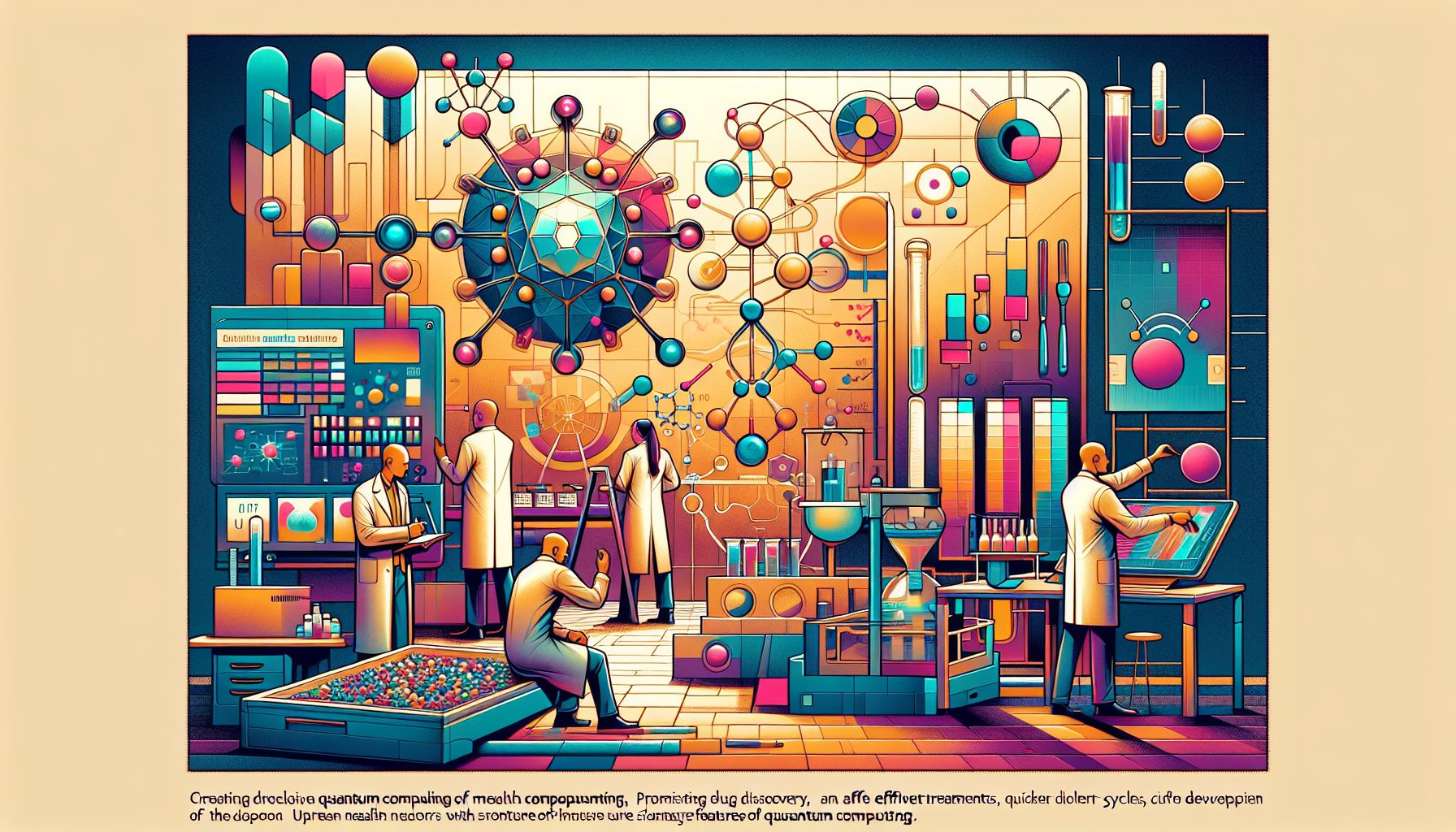Quantum Computing Set to Transform Medicine with Faster Drug Discovery

Quantum computing is advancing medicine by accelerating drug discovery, promising more effective treatments and quicker development cycles. European health tech pioneers are leading this innovation.
What’s Fueling the Revolution?
At the forefront of this quantum revolution is Jean-Philippe Piquemal, the director of the Theoretical Chemistry Laboratory at Sorbonne University and the French National Centre for Scientific Research (CNRS). Piquemal’s work focuses on quantum pharmacy, which leverages quantum computing to simulate molecular interactions, thus speeding up the discovery of new drugs. By using qubits, which can exist in multiple states simultaneously, quantum computers are capable of executing numerous calculations at once, far outpacing classical computers. This breakthrough has the potential to revolutionize drug development by enabling the creation of molecules in silico, rather than through the lengthy and costly process of laboratory experimentation[1].
How Quantum Computing Works
Quantum computing operates on the principles of quantum mechanics. Unlike classical bits, which are binary and can only be 0 or 1, qubits can exist in a state of superposition—being both 0 and 1 simultaneously. This property enables quantum computers to perform complex calculations at unprecedented speeds. Additionally, quantum entanglement allows qubits that are entangled to be correlated with each other, no matter the distance separating them. These unique characteristics allow quantum computers to tackle problems that are currently unsolvable by classical computers, such as simulating complex molecular structures in drug discovery[2].
European Health Tech Pioneers
European companies and research institutions are at the forefront of integrating quantum computing into healthcare. The RISC Software GmbH in Austria has launched the QML4Med project, which aims to merge quantum computing with machine learning to improve medical applications. This project focuses on predicting complications after blood transfusions, diagnosing arrhythmias through EKG data, and detecting pathological changes in imaging data. By analyzing both simulated and real quantum hardware, the project seeks to enhance the accuracy and reliability of medical models, thereby contributing to Austria’s technological sovereignty in quantum computing[3].
Global Collaborations and Future Prospects
International collaborations are also playing a critical role in advancing quantum computing in medicine. The Cleveland Clinic, in partnership with IBM and the Hartree Centre in the UK, is utilizing quantum computing to enhance patient outcomes and advance biomedical research. Dr. Lara Jehi of Cleveland Clinic is spearheading a project to use quantum computing to identify molecular features that predict surgical responses in epilepsy patients. This initiative not only aims to personalize treatment plans but also to expand clinical research studies, with the Cleveland Clinic London already having recruited over 600 patients for its BioResource[4].
The Road Ahead
Despite the promising advancements, the technology is still in its nascent stages. Piquemal likens the current state of quantum computing to the ‘Sputnik moment’—a period of rapid advancements and breakthroughs on the horizon. He estimates that it might take another two to ten years for quantum computing to fully realize its potential in drug discovery and personalized medicine. Nevertheless, the proof of principle is already there, and the ongoing research and development efforts are laying a solid foundation for future applications[1].

